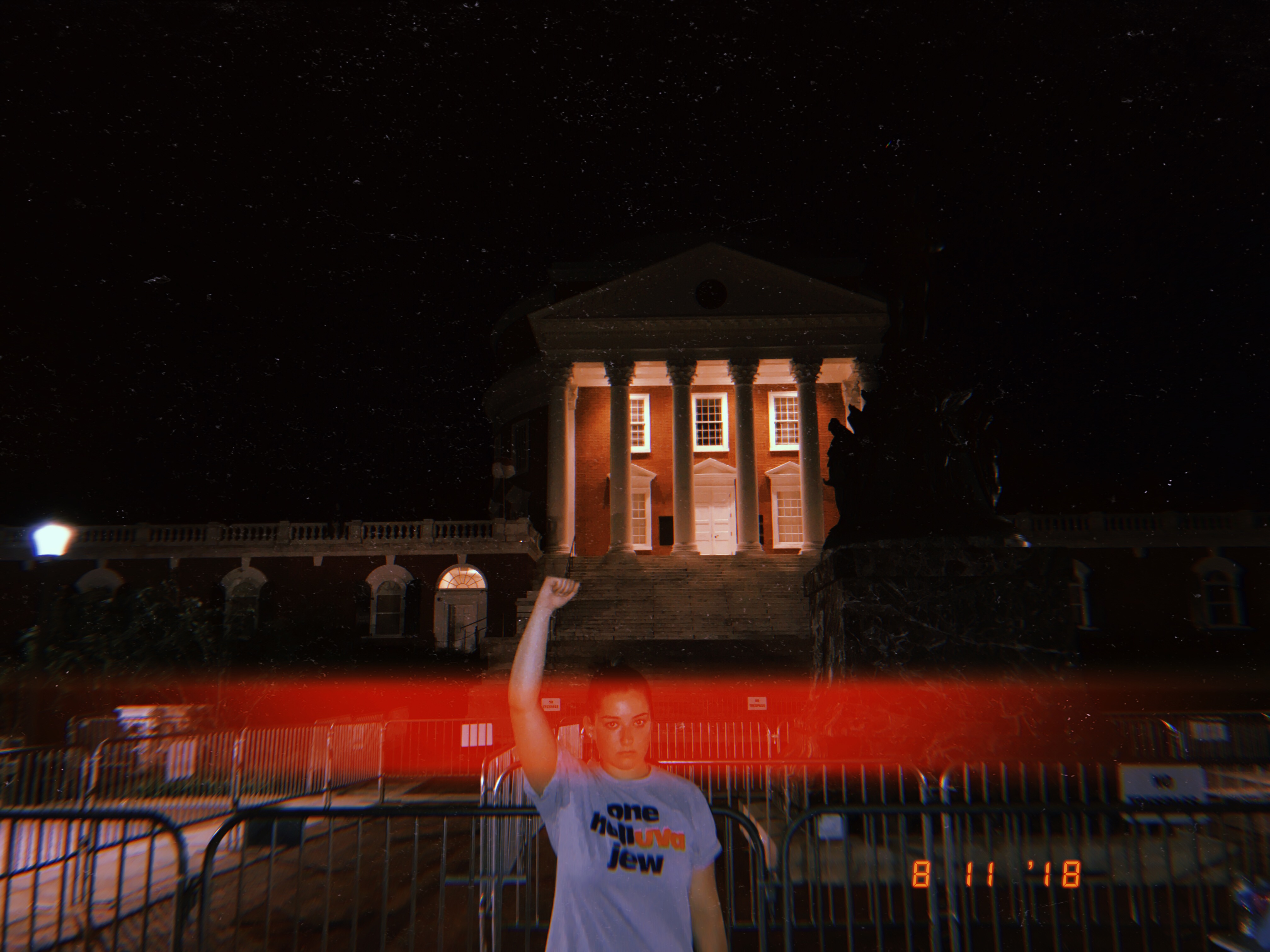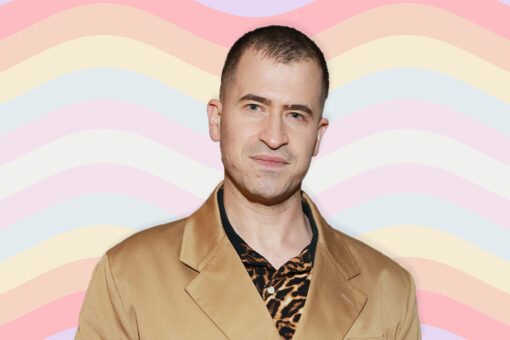A year ago, before neo-Nazis held a demonstration in Charlottesville on my college campus, I was a different Jewish woman. Yet as painful as my last year in Charlottesville has been, I cannot help but feel more secure in my Jewish identity. All I can hope is that this feeling of secure identity will outlive the trauma.
Many of the neo-Nazis who marched that day showed up from around the country, but there were plenty of alt-right members that came out of their local shadows, too. Charlottesville is not a neutral college town. Our campus was built on the backs of slaves, fully rooted in white male supremacy. There is a movement here to take down the statues of Confederate leaders; members of the alt-right view this as an attack on white people. So it did not come as surprise to anyone that “Unite the Right” organizer Jason Kessler chose Charlottesville.
That weekend I was just over the mountains finishing up my summer as a camp counselor, where I was very cut off from the outside world. I had little access to news, social media, and far less communication with my friends and family than I have during the year. But what I did hear left me completely paralyzed. My fellow counselors came in to try to comfort me, but I was beyond comfort. A year later, I am still dealing with the guilt from not being there to stand up with my fellow activists.
And I still don’t feel understood by my family, friends, or other UVA students.
I have questions I don’t know how to communicate, anger that’s difficult to get out, and fear that sank in too deep to purge. I should not have to explain why Nazis storming my campus would be deeply troubling for me, a Jewish woman, yet I feel like I have to. Even though our Jewish community at UVA is vibrant and supportive, I’ve been afraid to open up this bottle of deep fear and pain; I don’t know whether I can handle what comes out.
To make matters worse, the local activist groups at the University of Virginia aren’t exactly welcoming to Jewish students. There is a damaging perception here that Jews are all white, wealthy, connected people — meaning we do not appear to be marginalized. This stereotyping and exclusion of Jews of color has led to Jews being left out of group decisions between student organizations, and a general dismissal of our pain. Even as neo-Nazis at the rally shouted “Jews will not replace us,” people instead quoted this exclusively as, “You will not replace us.” Yes, people here talk about Nazis, but they leave out their anti-Semitism. It should be clear that the Jewish people are a target, but apparently it’s not.
It makes me feel invisible. I can’t help but feel resentful and discouraged from organizing with people who do not recognize our pain.
I would love to say that we, the Jewish communities of Charlottesville, know what to do. That because we are Jews, we’ve had years and years of practice with anti-Semitism. But, that is not entirely the case. I don’t know what the answers are; I do not know how much of myself I owe to this fight. All I know how to do is be an unapologetically Jewish woman. To dive into every corner of our diverse Jewish community in Charlottesville.
So, in the last year, that is exactly what I did. I took on leadership roles, I went to Shabbat services and dinner every Friday, I went to every Jewish Women’s Group discussion. I taught Hebrew at the local synagogue, and led services at a local retirement home with my fellow Jewish women. I did all of this to feed my Jewish community with the love it deserves.
This process turned into something powerful. I looked at my Jewish peers and saw new aspects of their identities for the first time: loyalty, courage, perseverance, selflessness, creativity. This struggle to be visible gave me immense respect for my fellow Jews and their resilience. Whatever the interaction was, I can always count on having a laugh in even the most serious of conversations, supporting one another through whatever struggle, and sharing a comfort in being Jewish together in a space that does not always welcome us.
It is an immense privilege for me to be a part of such a diverse Jewish community. Whether we are adopted, queer, people of color, believers, skeptics, or whatever else, we are Jewish. This is where I learned that my Jewish community can be the space for a whole life. It is not only a source of free food and spiritual companionship, but a space for political debate, female companionship, exercise buddies, and an excuse to skip class and get brunch (sorry, Mom). It is the reason I go back to Charlottesville. Not only is my Jewish community who I want to stand up for, but I trust them endlessly to stand up with me, too.
I will never forget that weekend, or this past year, but I am ready to move forward. I am going to live every moment of my life as a Jewish woman. It’s the only way I know how to be.
Header Image via Clara Sophia Camber.



